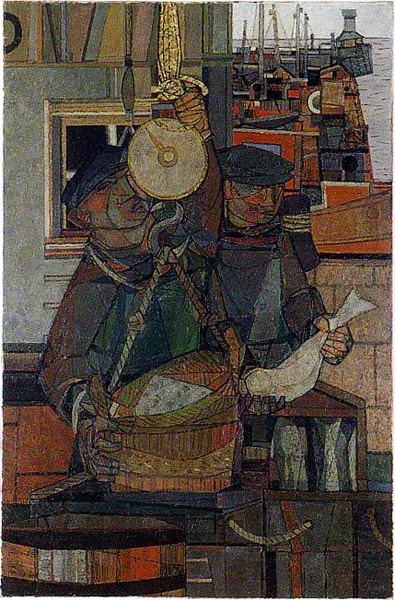Prunella Clough (1919-99), whose work is the subject of a small but intriguing exhibition at Tate Britain, was fond of quoting Edouard Manet’s remark about the difficulty of painting: “it is like throwing oneself into the sea to learn to swim.” Clough might be described as a minor English latecomer to the tradition that Manet himself founded, in response to the poet Charles Baudelaire’s call for “a painting of modern life”. Whereas Manet and his followers painted Paris in the throes of the many great changes attendant on the Industrial Revolution, Clough found her subject matter in the urban-industrial landscapes of post-war Britain.
At the start of her career, she painted fishermen on the docks at Lowestoft, telephone engineers hunched over their dials and machinery, and long-distance lorry drivers seated patiently in the cramped cabs of their vehicles. Later on, she became quirkier and more introspective and her subjects became amorphous to the point of inscrutability – mute abstractions woven with hints or traces of the scraps of stuff that the wind might blow around the empty spaces of an abandoned factory. Her late pictures are often so pointedly inconsequential as to hint at a deep-seated, melancholic perception of the world as chaos – a chaos so overwhelming that it is, indeed, best reflected in images of things as aimlessly ephemeral as a plastic bag flapping around the base of a lamp-post.
At Tate Britain, the artist’s work is presented in short, intermittent bursts of activity – occasionally, an entire decade is represented by no more than one or two works – so that it resembles a book with many pages missing or torn out. The exhibition’s elusive, fragmented nature is regrettable from one point of view, but might also be said to reflect the temperament...

